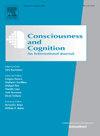Ontological conceptions of information cannot account for consciousness
IF 2.1
3区 心理学
Q2 PSYCHOLOGY, EXPERIMENTAL
引用次数: 0
Abstract
Epistemological and ontological conceptions of information are contrasted. The former are based on acts of decoding of extrinsic inputs that result in a decoder becoming informed. The latter are based on intrinsic states or state changes of the system independent of any external factors such as inputs to the system. Ontological conceptions of information, such as those that underlie integrated information theory or any theory that allies itself with panpsychism, are not able to account for consciousness. In the only physical systems that are known to be conscious, namely, animal brains, acts of decoding extrinsic inputs are central to creating consciousness and its contents. Moreover, only a very specific subset of decodings should realize consciousness, because consciousness in animals evolved to create an evaluative experience of what is intrinsically true about the world and the body, which is then used in a perception–action cycle that affords choices among options for behaving in the world in order to accomplish goals.
本体论的信息概念无法解释意识。
信息的认识论概念与本体论概念形成了鲜明对比。前者基于对外部输入的解码行为,解码者由此获得信息。后者则基于系统的内在状态或状态变化,与任何外部因素(如系统输入)无关。信息的本体论概念,如作为综合信息理论或任何与泛心理主义结盟的理论基础的概念,都无法解释意识。在已知唯一具有意识的物理系统,即动物大脑中,解码外在输入的行为是产生意识及其内容的核心。此外,只有非常特定的解码子集才能实现意识,因为动物的意识进化是为了创造一种对世界和身体内在真实情况的评价性体验,然后将这种体验用于感知-行动循环,从而在世界行为选项中做出选择,以实现目标。
本文章由计算机程序翻译,如有差异,请以英文原文为准。
求助全文
约1分钟内获得全文
求助全文
来源期刊

Consciousness and Cognition
PSYCHOLOGY, EXPERIMENTAL-
CiteScore
4.30
自引率
8.30%
发文量
123
期刊介绍:
Consciousness and Cognition: An International Journal provides a forum for a natural-science approach to the issues of consciousness, voluntary control, and self. The journal features empirical research (in the form of regular articles and short reports) and theoretical articles. Integrative theoretical and critical literature reviews, and tutorial reviews are also published. The journal aims to be both scientifically rigorous and open to novel contributions.
 求助内容:
求助内容: 应助结果提醒方式:
应助结果提醒方式:


